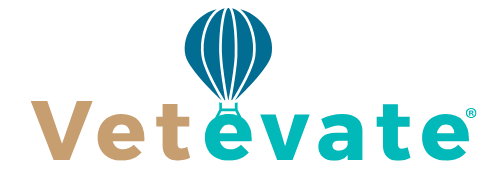Timing is one of the most overlooked elements of a successful job search. In the veterinary world, where positions can be competitive and career paths vary widely, knowing when to begin looking for new opportunities can make a significant difference. Whether you’re a recent graduate, a seasoned practitioner, or a vet tech ready for a change, starting your job search at the right time can lead to better choices, stronger offers, and less stress. While there’s no universally perfect moment for every individual, there are patterns and seasonal trends that affect hiring activity. Understanding those cycles—and knowing how to make the most of them—can give you a valuable edge when using veterinary job boards.
The best time to start looking for veterinary jobs often depends on where you are in your career and what type of role you’re pursuing. For example, if you’re about to graduate from veterinary school, you’ll want to start searching well before you receive your diploma. Many clinics and hospitals begin hiring for associate veterinarian positions several months in advance, knowing it can take time to find the right fit. Likewise, if you’re moving to a new city or hoping to switch specialties, you’ll need lead time to plan your transition. Starting early gives you the luxury of choice—you’re not rushed, you’re not settling, and you’re able to focus on finding a role that aligns with your goals and values.
Seasonal Trends in Veterinary Hiring
Veterinary hiring tends to follow some predictable rhythms, particularly in practices that operate on annual budgets or plan their staffing needs seasonally. One of the busiest times of year for hiring in animal care is late winter through early spring. From January through April, many veterinary clinics and hospitals begin recruiting for roles they need filled before the busy summer months. These months tend to see an uptick in pet appointments, especially in general practice, due to vaccinations, wellness visits, and increased activity levels among pets. Employers are often eager to have new staff in place and trained before that surge begins.
This window is especially important for new graduates. If you’re completing your degree or credentialing process in May or June, you should start actively searching and applying for jobs as early as January. Employers hiring in spring may be willing to wait a few months for the right candidate to finish school or sit for licensing exams. Veterinary job boards are often flooded with new listings during this time, offering the broadest range of opportunities for early-career professionals and technicians looking to launch their careers.
Another important hiring wave happens in late summer and early fall, typically from August through October. By this point, employers have reassessed their staffing after the busy summer period and are preparing for the end-of-year needs, including holiday staffing and budget planning for the upcoming year. Practices looking to start someone new in Q4—or in January—will often post jobs during this period. This makes late summer a great time to re-engage with job boards, especially if you’re not in a rush but want to be strategic. Even if you’re casually browsing, you can get a sense of what’s out there and start making connections with hiring managers ahead of time.
Personal Milestones That Signal It’s Time to Look
While seasonal hiring trends are helpful, the best time to search for a veterinary job isn’t just about the calendar—it’s also about recognizing personal milestones and moments in your career. Feeling professionally stagnant, undervalued, overworked, or burned out are all indicators that it might be time for something new. If you find yourself dreading your workday more often than not or feeling disconnected from the reasons you entered the veterinary field in the first place, those are signs you should start exploring your options.
Waiting until you’re desperate to leave can actually hurt your chances of landing the right role. Job searches made in a rush often lead to quick decisions that don’t fully align with your goals or values. On the other hand, looking while you still have the time and space to be selective empowers you to pursue jobs that truly match what you’re looking for—whether that’s better work-life balance, a different patient population, or more supportive management.
Life changes can also prompt the right time to search. A move to a new city, the need for more flexible hours, or even the desire to explore a new specialty can all be catalysts. In those cases, beginning your search early—perhaps three to six months before you plan to make the change—can give you the best chance of landing a role that fits your new needs. A veterinary job board is the ideal place to start this kind of search because it allows you to browse by location, role type, and even employer values, giving you a customized approach to finding your next opportunity.
How to Use Job Boards Strategically
The beauty of veterinary job boards is that they allow you to stay informed about the job market even when you’re not actively applying. The smartest job seekers use these platforms not just as a place to hunt for jobs, but as an ongoing career tool. Signing up for job alerts, reading blog content, and browsing listings regularly can keep you in touch with trends in hiring, compensation, and workplace culture. Even if you’re not planning to make a move right away, being aware of what’s out there can help you be more confident and prepared when the time comes.
If you’re not ready to apply but want to test the waters, consider using veterinary job boards to network with employers, ask questions about company culture, or explore emerging roles. Some boards allow you to create a profile, upload a resume, or privately show interest in a job without committing to a formal application. These features can help you stay in the loop and build relationships early, so when you’re ready to make your move, you’re already a step ahead.
And if you’re currently in a job but thinking ahead to your next step, set a recurring reminder—once a month or once a quarter—to check in on the veterinary job boards you trust. You may be surprised by how much insight you gain just by keeping an eye on how the market is shifting. New positions pop up, compensation packages change, and clinics evolve. By staying engaged year-round, you ensure that you’re never caught off guard or left scrambling when it’s time for your next move.
Ultimately, the best time to start looking for veterinary jobs is before you feel like you absolutely have to. Whether you’re planning a major life transition or just exploring what’s next, starting your search early puts you in control. Veterinary job boards make this process more focused, less stressful, and more effective by offering a space designed specifically for your career path. When you use them strategically—and start your search with enough time—you’re far more likely to find a role that reflects your passion, supports your lifestyle, and advances your career.




